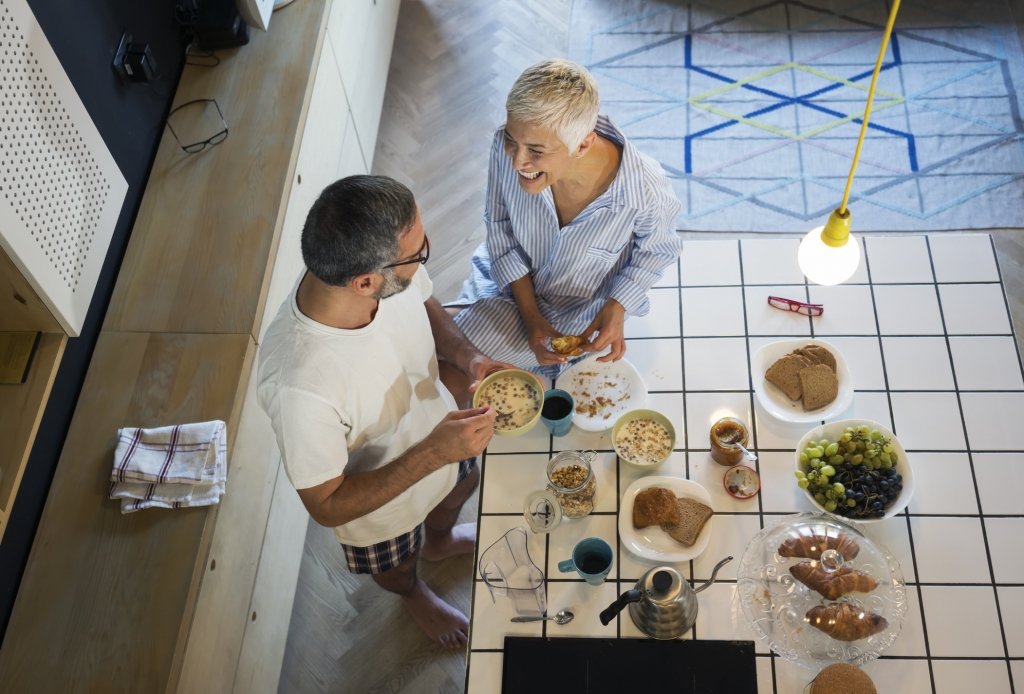Five Good Things About Aging
When I was in graduate school, one of my most memorable experiences was with a woman whose name or face I don’t remember. She was a guest speaker from one of the eldercare organizations in town. She gave each of us the following exercise:
‘Write down the five things that you most value in your life – whether it’s your health, your faith, relationships, ability to travel, etc.” Within few moments, we each had come with our five top priorities. “Now,” she said, “cross two things off the list.” That took a while. Finally she said, “Now, cross off more thing.” The mood in the room got a little more somber as we struggled with this last task. When we finished she said, “That’s what it’s like to get older. You lose the things that mean the most to you.”
While it’s true that the aging process certainly includes unwelcome changes and loss, imagine my curiosity to see an article entitled “Five Good Things About Aging” in a recent health publication. Here are five ways you may get better with age!
1. Negative emotions decline as we get older.
Emotions tend to mellow with age and happiness increases. People in their 70s and 80s report being less troubled by anger, stress and worry than people in any other age group. Rates of depression actually go down after age 60. Those findings, from a large Gallup survey, held up even when researchers took into account such variables as unemployment, marital status, and children living at home.
People in their 70s and 80s report being less troubled by anger, stress and worry than people in any other age group.
Researchers don’t have an exact explanation for this in emotional health, but suspect that it may have to do with being less concerned about the future and more ability to focus on the here and now – to stop and smell the roses.
What You Can Do: Pursue activities such as meditation and yoga to cultivate mindfulness and present moment awareness.
2. Wisdom Grows.
Fortunately, wisdom doesn’t seem to decline as do some other cognitive abilities, such as memory. In fact, the brain retains its experience-based knowledge well into old age, research suggests.
Fortunately, wisdom doesn’t seem to decline as do some other cognitive abilities, such as memory. In fact, the brain retains its experience-based knowledge well into old age, research suggests. In one study, at the University of Michigan in Ann Arbor and the University of Texas in Dallas, subjects were tested on their “wisdom skills” – the participants’ ability to accurately judge the outcome of a fictional dispute, based on their the ability to see other points of view, to accurately assess the likelihood of change, to recognize that our knowledge is limited and uncertain, and to think creatively to resolve conflicts. The outcome? Significantly more older people ranked in the top 20 percent on wisdom performance. And people with an average age of 65 outperformed younger participants.
What You Can Do: Identify wise individuals to learn from and emulate. Cultivate their ability to be open to different perspectives, new experiences and novel ways of solving problems.
3. Marriages Get Healthier.
Married seniors reports greater satisfaction and more positive experience with their mates than younger married couples do, even when they quarrel, according to the Feb. 1, 2011, Journal of Social and Personal Relationships. One reason may be that appreciation increases as people grow older and begin to acknowledge their own mortality.
What you can do: Learn how to complain without conveying contempt or resorting to a personal attack. Strive to express more positive emotions than negative emotions to your mate. According to relationship expert John Gottman, “What can make a marriage work is surprisingly simple. Happily married couples aren’t smarter, richer, or more psychologically astute than others. But in their day-to-day lives, they have hit upon a dynamic that keeps their negative thoughts and feelings about each other (which all couples have) from overwhelming their positive ones.”
4. Satisfaction with Social Relationships Grows.
People who are happier in day-to-day life actively look for ways to experience more positive emotions rather than dwelling on negative ones.
Seniors typically have a smaller but closer circle of friends than younger adults, research shows. That’s because older people tend to focus on close friends and family members who are important for their emotional bonds. A side benefit is that social connectedness helps seniors stay healthy.
What you can do: Maintain social contact by planning your day to include others, whether it’s sending an email to a friend or family member or by exploring recreational or travel opportunities. Reach out by being a volunteer, even if it’s simply to phone a person in need each day.
5. Happiness Increases.
It’s not extreme happiness, but rather a feeling of more contentment and a sense of purpose and meaning. People who are happier in day-to-day life actively look for ways to experience more positive emotions rather than dwelling on negative ones.
What you can do: Develop new interests and indulge in small pleasures. Make a conscious decision to be happier. Don’t know how to get started? See Dr. Martin Seligman‘s books Learned Optimism or Authentic Happiness to learn how to increase your skillfulness in cultivating more happiness in your life.




